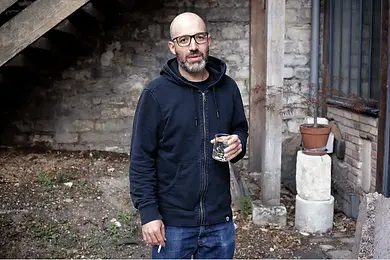
Essays, Articles, & Other Stuff
GRANTA
"I was ten, school was out, and my father had an amazing idea. He was going to rebuild our house – a sloping three-bedroom with gray Masonite siding – entirely out of brick. And not just any brick, but a very special, hard-to-find brick that went by the melodious nineteenth-century name of its maker: Silas Lucas."
THE NEW YORK TIMES
Even the Darkest Night, the first in a trilogy of novels, finds the great Spanish writer Javier Cercas trying his hand at crime.
THE RADCLIFFE INSTITUTE
Garth Risk Hallberg | Organized Complexity: The Novel and the City
The writer Garth Risk Hallberg explores the affinities between the modern social novel and the modern city. From Dickens’s London to Richard Wright’s Chicago, from the Paris of Les Misérables to the Boston of The Bostonians, the two have developed in parallel.
LITERARY HUB
About the uncanny experience of seeing a novel come to life on the screen, handing over the creative reins (with “a license to kibitz”), ingenious acts of translation, and more.
THE NEW YORK TIMES
The question this admirably bonkers and fitfully phenomenal book jazz-hands its way around is more or less the one now mooted by reality: Where does “functioning” end and life begin?














